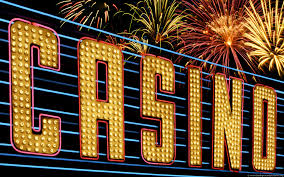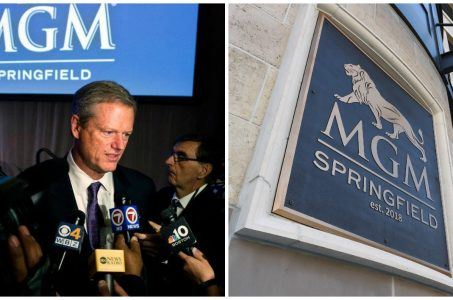Moody’s Upgrades US Casino Market to “Not Quite So Bad”
Posted on: July 17, 2015, 03:42h.
Last updated on: July 17, 2015, 03:47h.
Moody’s Investors Services has some good news for the American gaming market. Sort of.

The US land-based casino industry is showing signs of improvement, but only a bit, according to Moody’s, which this week upgraded its appraisal of the market from negative to stable.
In May, gambling revenue rose in all of the 18 states that are tracked by Moody’s, except for Connecticut and New Jersey, the firm said, with an average growth, year-on-year, of 4.1 percent across those states.
Moody’s cited a positive trend of revenue growth, cost-cutting, and reduced market “cannibalization,” whereby companies poach business from one another, as contributing factors.
The firm believes there is room for modest growth, and that revenue will increase between zero and 2 percent each month, year-over-year, for the next 12 to 18 months, which could result in an increase in profit of 3 to 4 percent, excluding taxes and other items.
Breathing Room
Despite this positive note, Kevin Foley, the company’s gaming analyst, was far from effusive.
“While not a stellar performance, we consider this broader improvement a tangible sign of sector revenue stability,” he told the Associated Press. “We’re not saying they’re getting better… At least, it’s some breathing room. It’s better than if it went the other way.”
It is, nevertheless, a rosier outlook than this time last year, when gaming revenues, with the exception of Nevada, remained flat, despite economic improvement and growth in other sectors. In June 2014, Moody’s appraisal was that revenues were weaker than expected, and the economic outlook beyond Las Vegas seemed bleak and was graded as “negative.”
Now, says Moody’s, operators are benefiting from years of lower cost structure. The economic downturn of 2008 hit the casino industry hard, and forced it to tighten budgets. Several casino companies that had begun expensive expansion plans at that time were caught short, as revenue plummeted and it became almost impossible to refinance debt.
Running Out of Room
Caesars Entertainment, previously Harrahs, was the most high-profile casualty. After years of expansion, the company was acquired by Apollo Global Management and TPG Capital in a $30.1 billion leveraged takeover.
Caesars acquired an industry-high debt in the process, and struggled in the ensuing years, failing to turn a profit until this year, when, despite the complex bankruptcy proceedings of its main operating unit, it announced that its margins had returned to “pre-crisis” levels
Foley cautioned that casino operators “may be running out of room to cut costs much further,” adding that “too much cost-cutting could sacrifice quality and service, which operators cannot afford at a time when they are battling for market share amid supply increases.”
In addition, he warned that casinos must contend with a lack of growth in consumer spending, as disposable income levels remain relatively low.
Related News Articles
Most Popular
FTC: Casino Resort Fees Must Be Included in Upfront Hotel Rates
Genovese Capo Sentenced for Illegal Gambling on Long Island
NBA Referees Expose Sports Betting Abuse Following Steve Kerr Meltdown
UPDATE: Former Resorts World & MGM Grand Prez Loses Gaming License
Most Commented
-
UPDATE: Whiskey Pete’s Casino Near Las Vegas Closes
— December 20, 2024 — 32 Comments -
Caesars Virginia in Danville Now Accepting Hotel Room Reservations
— November 27, 2024 — 9 Comments -
UPDATE: Former Resorts World & MGM Grand Prez Loses Gaming License
— December 19, 2024 — 8 Comments -
FTC: Casino Resort Fees Must Be Included in Upfront Hotel Rates
— December 17, 2024 — 7 Comments
















No comments yet